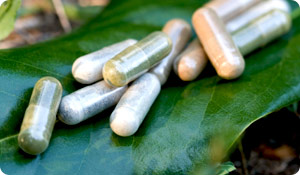
A slew of research has emerged about the efficacy of nutritional supplements in combating various illnesses, and the overall verdict is not good. In December 2008, a study of almost 15,000 male physicians across the U.S. concluded that vitamins E and C showed no preventative effects on prostate or other cancers. In the August 2008 issue of the Journal of the American Medical Association, another study revealed that B vitamins failed to decrease the risk of cardiovascular disease. In fact, the study came to an early end after Danish researchers reported that the overuse of B vitamins may lead to cancer. Here's what you need to know about other supplements that have been linked to heart health:
Potassium. This mineral helps the heart function properly. Plus, many heart-disease patients take a diuretic to rid themselves of excess fluid, which can leach the body of potassium, making a supplement or additional consumption necessary. According to the Mayo Clinic, there is no evidence to support the supposition that potassium supplements can help treat high blood pressure. The organization advises that since a high amount of potassium can be harmful, supplements should be taken under the guidance of a doctor. Natural sources of potassium include raisins, bananas, strawberries, oranges, turkey, spinach, tomatoes, beets, mushrooms, and beans.
Vitamin D. This is the one supplement in this group that (1) doesn't often occur naturally in foods and (2) has recently proved itself beneficial to the heart. In the January 2008 issue of the Journal of the American Heart Association, researchers involved in the Framingham Heart Study found that subjects suffering vitamin D deficiency were twice as likely to develop cardiovascular disease. Unfortunately, an estimated 1 billion people worldwide suffer from moderate to severe form of this deficiency. The recommended daily dose for adults is 200 IUs to 400 IUs, which is best obtained from about 15 minutes of sunscreen-free daylight. Small amounts are also contained in fish such as salmon and tuna, beef liver, cheese, milk, and certain types of mushrooms.
Omega-3 fatty acids. The American Heart Association (AHA) suggests that people who have been diagnosed with coronary heart disease should consume a gram of eicosapentaenoic acid (EPA) and docosahexaenoic acid (DHA)-two omega-3s that can be found in fatty fishes like mackerel, sardines, and lake trout. The AHA also recommends alpha-linolenic acid (LNA), which is abundant in soybean-products such as tofu and walnut, canola, and flax-seed oil. The association cautions that if heart disease patients prefer to take supplements to meet these standards, then they should consult their physician.
The bottom line is that it's best to get your nutrients straight from the source. If you have or are at risk of developing heart disease, you need to revise your daily diet from fast and easy to fit and healthy and incorporate more fruits and vegetables-the USDA recommends anywhere from five to nine servings a day.





